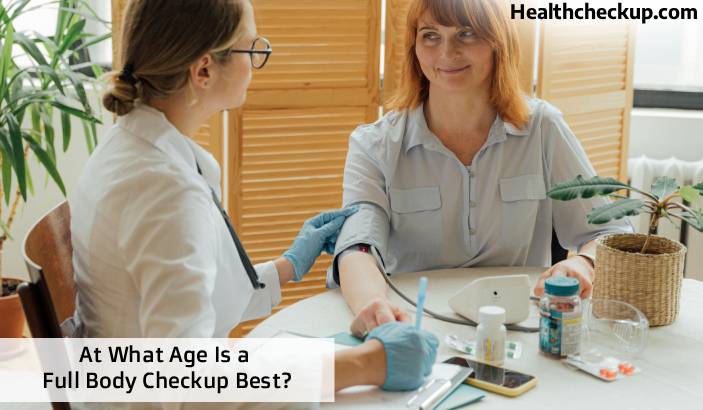Are you one of those men who has been sexually indiscreet, or to put matters more bluntly, sexually active with multiple partners? If that is the case, you are a prime target for STI or sexually transmitted infection. Sexually transmitted diseases are one of those diseases that cause world-wide concern, as they can be passed on from one person to another easily. Sexually active men should make it a point to undergo STI check up for men at frequent intervals. Taking a male STI test regularly is the only way to keep sexually transmitted infections in check.
STIs are rather tricky as they do not show any signs or symptoms in a majority of the people, or there can be mild signs in a few people that can be very easily overlooked. Many people imagine that if they were to be infected by STI, they would find some sort of signs or symptoms. They do not realize that unless they undergo an STI check up for men they would know for sure if they have been infected or not. Most of the men are confused about the STI check up for men as they feel that it is taken care by their annual health check up. Your doctor will not ask for a male STI test until you specifically ask for this test.
Men who have had unprotected sex with multiple partners have every reason to be exposed to sexually transmitted infections. More specifically, they would be exposed to the common to STI infections such as chlamydia, gonorrhea, HIV, herpes, HPV, syphilis and trichomoniasis.
People who are concerned about getting an STI check up for men need not be unduly worried. Getting an STI testing for men done can be quite quick and easy.
The chart below is a fair indication of what tests to expect when you go in for a male STI test:
1. For Chlamydia and Gonorrhea Swab of the genital area or urine sample
2. For HIV Blood test or swab from inside of mouth
3. For Genital herpes Swab of affected area – confirmed by a blood test
4. For Syphilis Blood test or Sample was taken from a sore
5. For Trichomoniasis Swab of infected area, physical exam or sample of discharge
6. For HPV (genital warts) Visual diagnosis of warts
STI Check Up for Men
Most of the time, men are not aware of the symptoms of STI symptoms in men, but they should remember not to ignore even the slightest of symptoms. People can contract an STI infection by indulging in any type of sex – vaginal, oral, or anal. This is applicable to heterosexuals, bisexuals, and homo-sexuals.
Since some STIs might not show any symptoms immediately, you and your partner/s might be infected and you may not even know it. It is extremely vital to remember that if you are sexually active, regular STI testing for men is important.
Some or all of the following STI Symptoms Can be Observed in Men:
- A discolored or foul-smelling discharge from the penis
- A burning feeling during urination
- Pain during sex or masturbation
- Excessive itching in the penis or scrotum
- Unusual bumps or a rash on the penis or scrotum
- Bleeding from the penis
Treatment after STI check Up for Men:
People who have acquired an STI should remember the cardinal rule that they should not treat themselves as these diseases are dangerous and any wrong medicine can aggravate the disease and compound the problem. And therefore, they should inevitably go to the doctor.
- Bacterial ST diseases can be cured with antibiotics if treatment begins quite early. Though viral STDs cannot be cured, they can be managed with symptomatic treatment.
- HIV/AIDS: Unfortunately, AIDS is not curable, and hence the treatment focuses on keeping HIV levels in check. Antiretroviral drugs are the normal therapy for HIV infection, but people should talk to their doctor about the therapy to know more.
- Chlamydia and Gonorrhea: These STIs are treated with antibiotics and people should start the treatment even though there are no visible symptoms. The sex partners should also have to be treated regardless of whether they have symptoms or not. People with such STIs should get STI check up for men after three months to make sure that the infection has cleared. Failure to treat chlamydia or gonorrhea can result in permanent damage to the reproductive organs.
- Syphilis: Syphilis is usually treated with penicillin. But, it is essential to commence treatment early to prevent the bacteria from spreading and damaging other organs.
- Genital herpes: The peculiarity of genital herpes is that the virus remains in the body throughout life. After the initial outbreak, herpes may flare up several times every year. Antiviral medication will help reduce the duration and severity of the initial and subsequent herpes outbreaks.
- Genital warts: There is no treatment for genital warts, and most genital warts will disappear without treatment. But, it should be remembered that the infected people still carry the virus that causes warts and can transmit it to their sex partners. There are several options for treatment of genital warts. Freezing the warts or applying medication directly to them is the common method. But, if genital warts do not respond to these treatments, surgery may be necessary to remove them. Keep in mind that treatment does not rid the person of the infection, and they can pass it on to others.
- Hepatitis B: The aim of hepatitis B treatment is to stop liver damage by preventing the virus from spreading to other parts of the body. If the infected person develops considerable liver damage from hepatitis B, a liver transplant may be necessary.
- Trichomoniasis: People who are infected by this organism are treated with the oral drug metronidazole.
- Bacterial Vaginosis: Bacterial vaginosis can be treated with antibiotics such as metronidazole or clindamycin.
Medically Reviewed and Updated By









